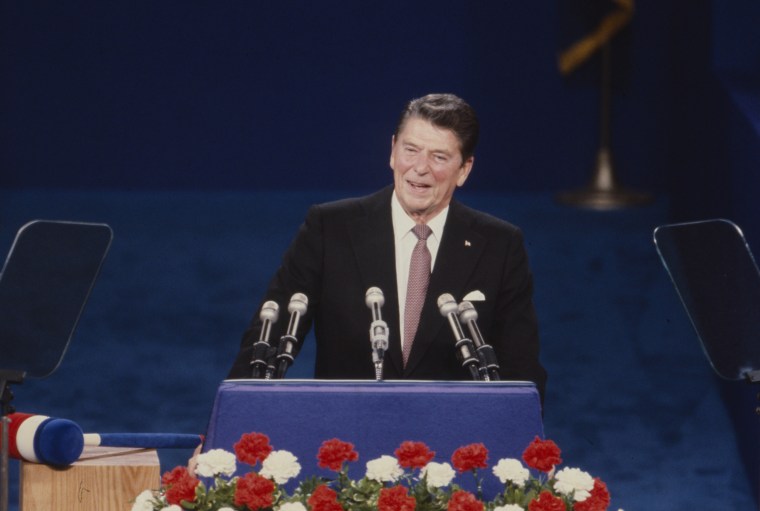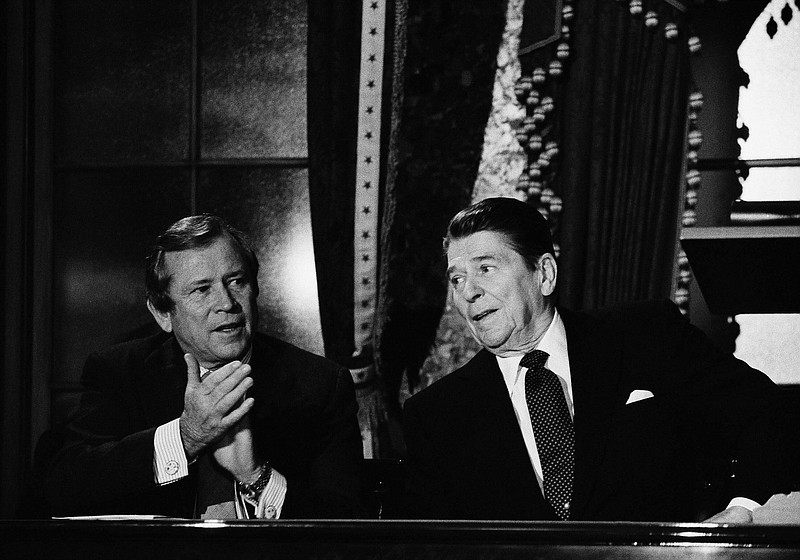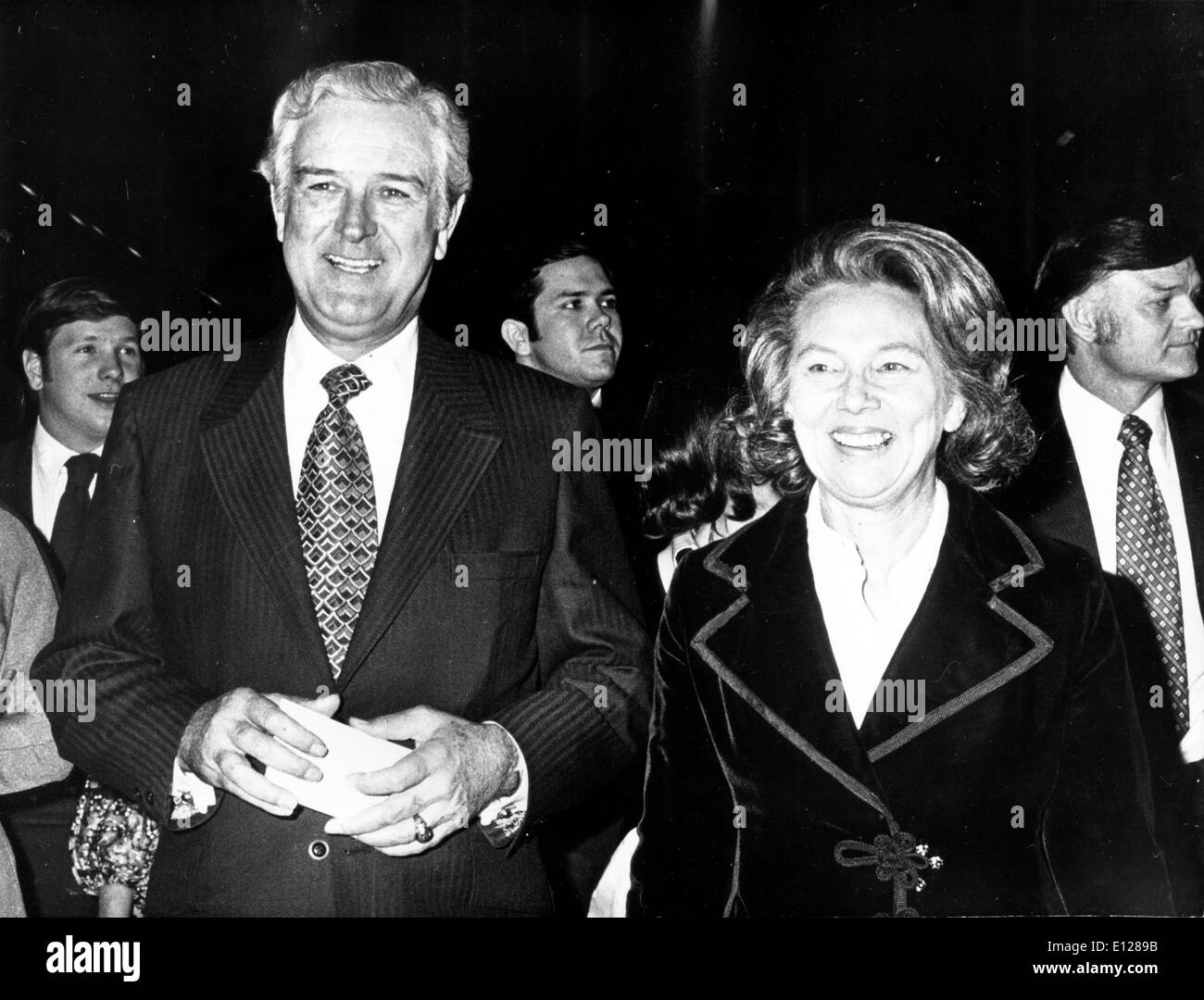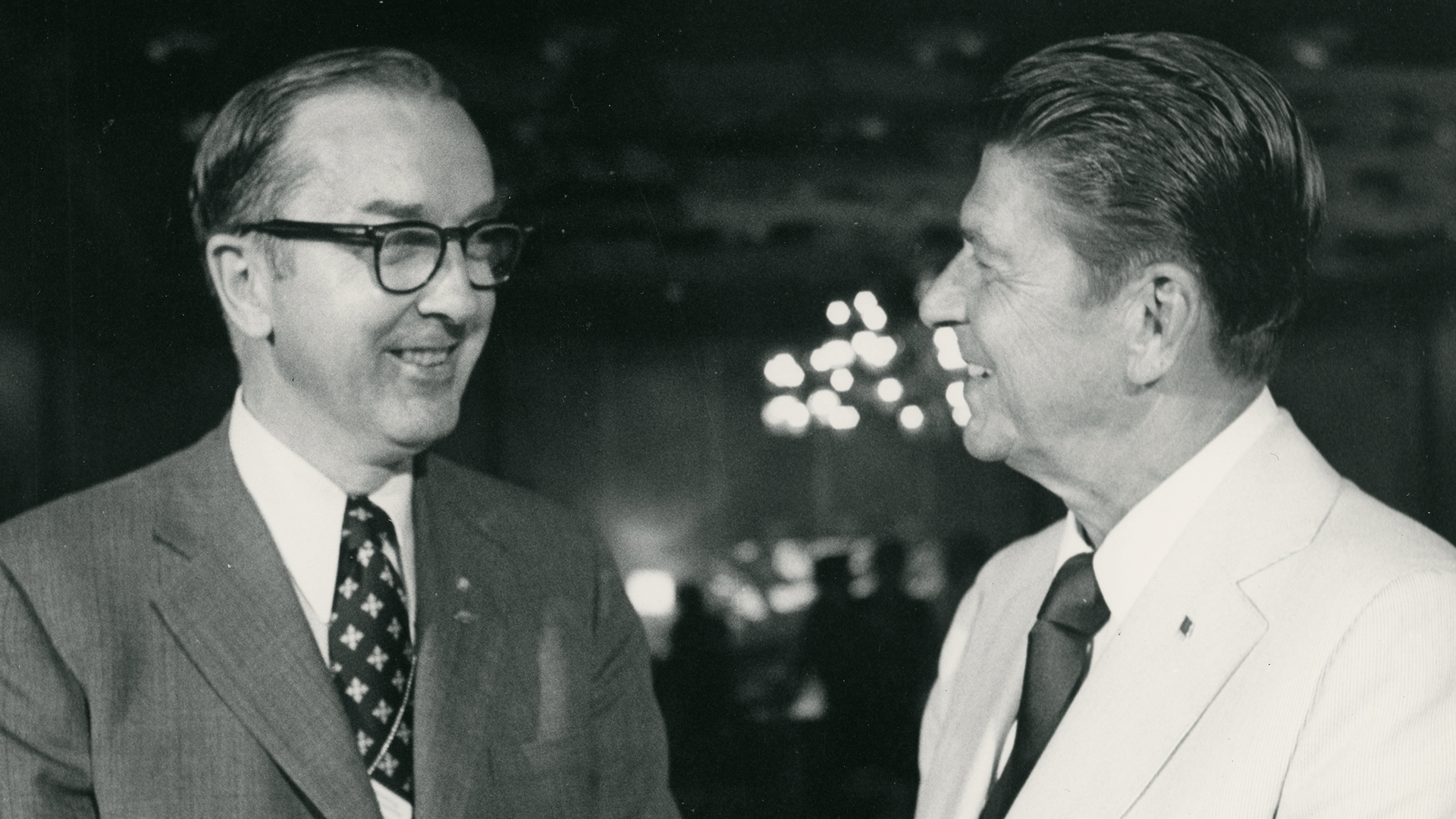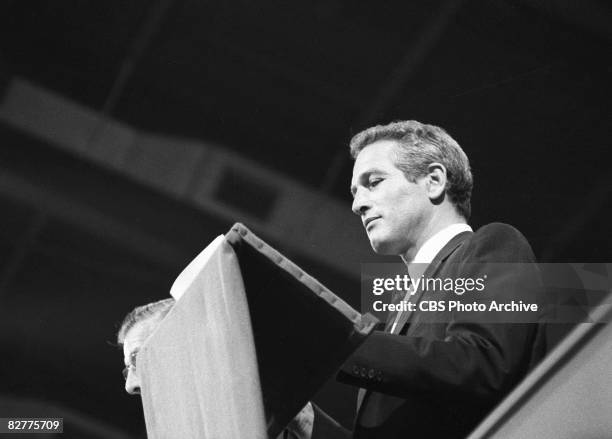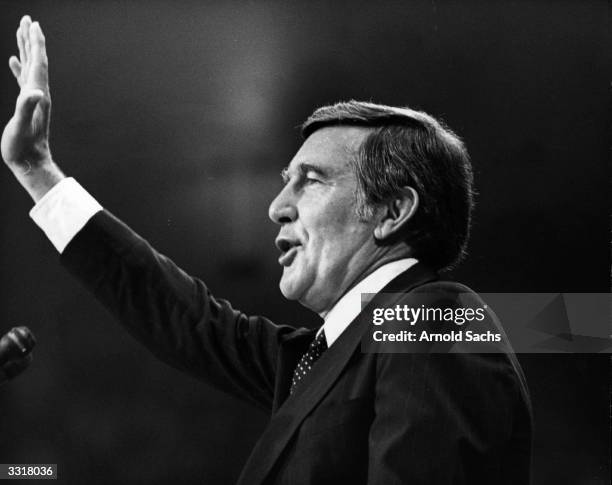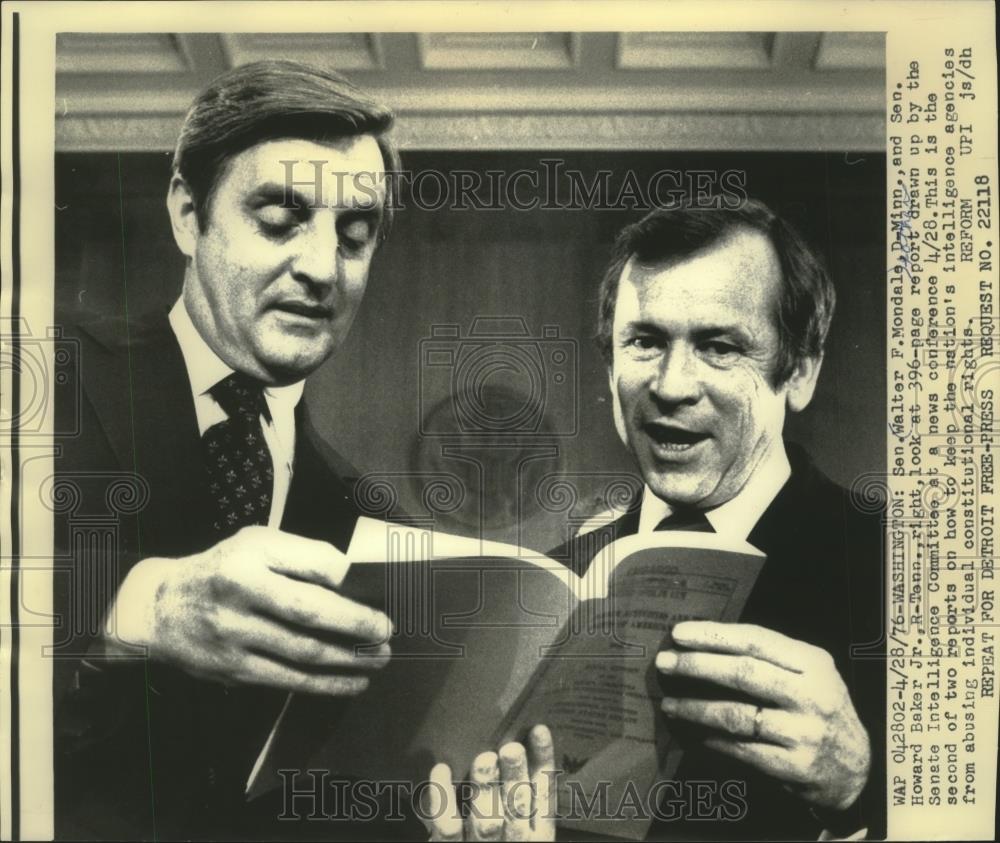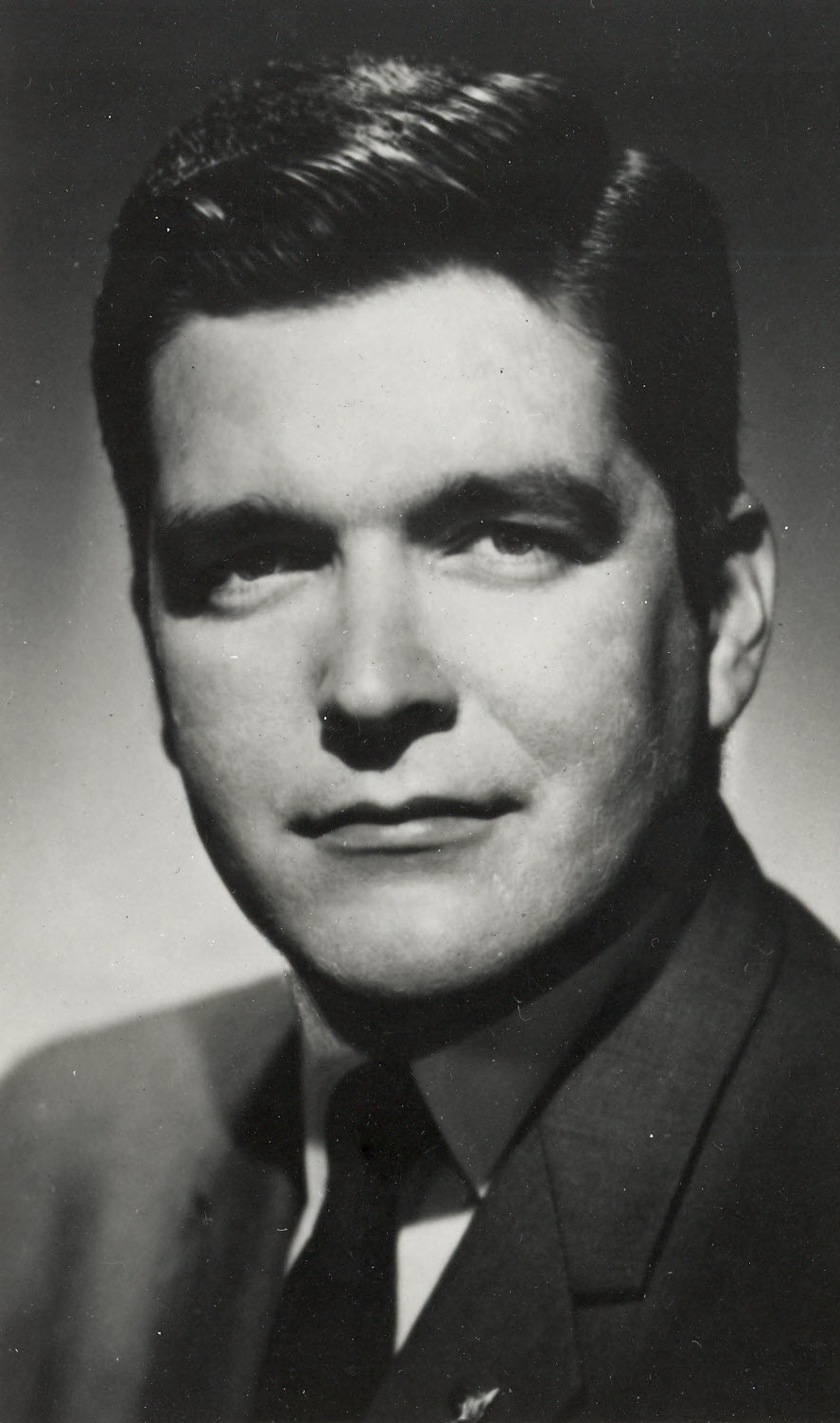Chapter 6: The End of the Primaries
Chapter 6: The End of the Primaries
“Take Sherman and cube it,” George H.W. Bush, referencing William T. Sherman's refusal to serve as the president in 1884 when asked by reporters if he'd accept the position of vice president.
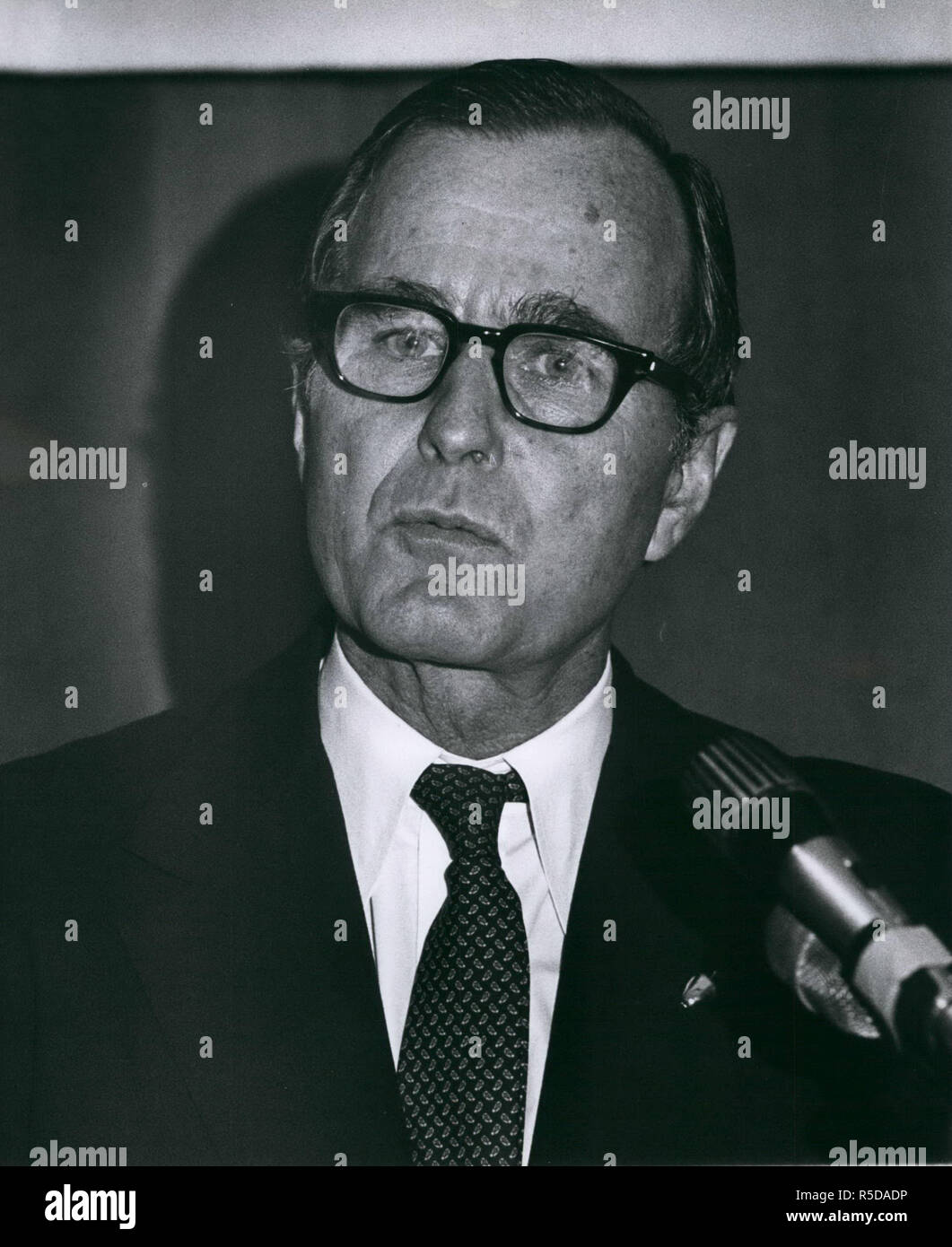
March seemed to be the month of Anderson. After he had beaten Bush and Reagan in Vermont and Massachusetts he had gone back home to Illinois to prepare for the primary on the 18th in the state. His return to Rockford must have felt like Napoleon's arrival in Paris following Austerlitz as crowds of mostly young enthusiastic people greeted the man whom they had not known was their congressman until a month ago. His grassroots movement had grown vastly since New Hampshire and now with his string of victories on the East Coast, he went to work once more, although it would not be nearly as difficult as it had been earlier in the campaign. He now had campaign offices across the state and volunteers willing to go door to door to gather votes for the man who the press now dubbed, "The Republican Eugene McCarthy," due to his support from young people and small donors. His newfound popularity did not make Anderson lazy though, as he campaigned across the state from the rural north to Chicago and the southern farmlands. He had his native state all to himself for a whole week as Reagan and Connolly had fought in the south and it wasn't until the twelfth that Reagan had finally appeared in the state. Connolly had decided to ignore the state knowing that his southern populism would have no appeal in Anderson's backyard and he instead focused on preparing for the Louisiana primary. Bush had also decided to avoid the state. He would have liked to have campaigned there if only to spoil Anderson and allow Reagan to win, but his campaign was too broke to allow for such vindictiveness. Gathering what few supporters he had, he decided to make a last stand in the native region of his family, Connecticut. So for the first time, Anderson and Reagan would face each other alone. Media coverage of the race would explode as columnists wondered who would win between the liberal maverick and the conservative icon. The candidates for their part would take a deeply personal interest in the race, Anderson, since he represented the state in Congress, and Reagan since it was his first home. Although Anderson had strong support in the state, he was initially regarded as the underdog due to Reagan's rebounding support within the party and the potential moderate split between him and Bush. However, on the day of the primary, they would be proven wrong as Anderson beat the Gipper by 6 points with 47 percent of the vote, to Reagan’s 41 percent, followed by Connolly with 7 percent, and Bush with 5 percent. Following his victory in the state, Anderson gave a celebratory speech even more jubilant than the one in New Hampshire as his family and friends accompanied him on stage, while Reagan scolded his campaign manager William Casey behind closed doors.

(John and Keke Anderson after watching the results return from the Illinois primary)
After basking in his victory, Anderson wasted no time as he flew back to New England to finally finish off the other centrist in the race. His opponent's fall from grace had been dramatic, following New Hampshire. Once the hero of national moderate and liberal republicans almost all of them had jumped ship to the Anderson campaign following his losses. His candidacy ever afterward had been treated with apathy at best and like a joke at worst. Yet despite this fact, the primary in Connecticut would be no cakewalk. Bush had been in the state for nearly a month and had the support of almost the entirety of the state GOP officials, most of whom had in one way or another been involved with the Bush family in some way. While Bush was running low on support from donors he had no problem spending his oil money to finance his campaign. He also had been souring the voter's perception of Anderson in the state, releasing attack ads agaisnt him for his similarity with Carter as well as his past. Bush had a particularly fun time informing voters that Anderson had in the 1960s introduced a constitutional amendment that would, "recognize the law and authority of Jesus Chris over the United States." When he arrived in the state he found himself in the same position that Bush had found himself in New Hampshire and Reagan had found himself in South Carolina. With a little less than a week until the primary, Bush had outmaneuvered and outspent him significantly. Anderson would likely have lost the state if it had not been for the effort of one man, Lowell Weicker. Having abandoned his earlier bid for the presidency, he had thrown his full weight behind Anderson following New Hampshire, determined to let a liberal Republican finally have control over the party. He had never cared much for Bush, viewing him as only slightly less radical than Reagan (He had been an avid Goldwater supporter in 1964 after all), and when it looked as though Bush might carry his state, he came out swinging agaisnt the son of Prescott Bush crisscrossing the region dozens of the time while appearing with Anderson while he went after Bush for his conservatism and his negativity in Anderson often saying,
"Never vote for a man whose only position is to attack the other guy."
While nowhere near as influential as Strom Thurmond had been in South Carolina, Weicker's attacks had their effect on voters, and on primary day the final nail in the coffin was put in George Bush's campaign as he came in second to Anderson with 33 percent of the vote to Anderson's 35 while Reagan came in third with 32 percent. His last hope of making a comeback finished Bush finally dropped out, although he implied that he would fight on at the convention as he declined to endorse any candidate.
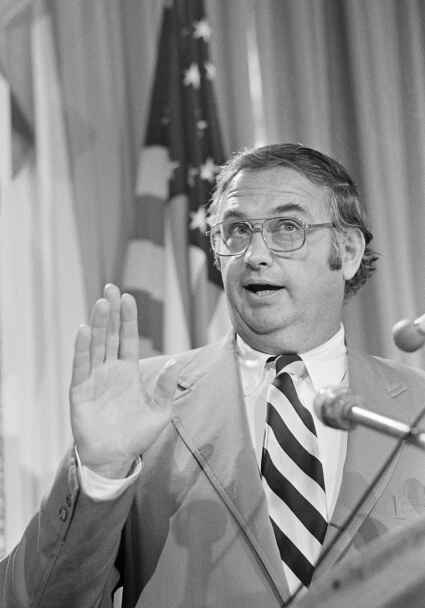
(Weicker stumping on behalf of Anderson in a rally in New Haven)
Yet despite all of Anderson's increasing star power, Reagan would not falter. Despite not winning any state in March besides Florida he was able to win almost all of New Yorks's delegates at the end of the month and by April it was clear that he was frontrunner again, despite the media dutifully reporting Anderson's wins in Wisconsin, Maine, and most surprisingly Pennsylvania where the normally jovial Reagan had lost temper at his campaign staff following his loss. However, there was no doubt that the gap between the other candidates and him was widening as he won double the number of contests of Anderson and while Connolly had won agaisnt Reagan in Lousiana, Reagan's support in the south was once again starting to surpass Connolly's as he crushed him in the Missouri Primary. This would become even more abundantly clear following the May 3rd and 6th primaries where Reagan won every single contest except Washington D.C. which Anderson won and Texas which Connolly very narrowly won (It has been rumored that Bush secretly helped his old rival in the state so that the convention could be deadlocked). While Anderson had support in New England and the Upper Midwest, and Connolly in the deep south, Reagan was sweeping the West, the Upper South, and the Lower Midwest. Both realized that they had no shot of winning the race outright which meant that the only way they could win, would be to garner enough delegates to prevent Reagan from winning on the first ballot. While Connolly had no qualms about attempting to deprive the winner of the popular vote of the nomination, Anderson did. Not only would it contradict his entire campaign message of good government and honesty, it would destroy his reputation. Even in the unlikely scenario of him winning the Republican nomination through backroom deals, he realized his chances of winning the election would be greatly diminished as conservatives would loathe him and they would either sit the election out or run a third-party candidate to stop him from becoming president. With this in mind, he refused all of Connolly's covert offers of a temporary alliance to stop Reagan. But that still left the question of his candidacy unanswered. What would he do when and if he lost the race to Reagan? After winning Maryland, just a single point ahead of Reagan, he eventually made a decision. If he did not win both the Michigan and Oregon primaries on the 20th he would drop out. With Michigan being the home of Gerald Ford and being known for its centrism and with the recent endorsement of the popular Oregon senator Mark Hatfield, Anderson was confident he could win both states. Despite his efforts though he would fall short. He would win Michigan comfortably but would lose Orgeon by almost ten points. The next day he ended his campaign, abandoning his long-sought effort to become the Republican nominee. Everyone was shocked at his announcement including Reagan, who was jubilant since his nomination was all but assured. Connolly meanwhile was livid, lashing out at everyone and everything at his ranch, and was reported to have said, "If that stupid Yankee had stayed in the race until July he could have been my damn vice president!" Connolly knew that the race was over, but his hubris made him stay in it until the Kentucky primary on the 27th of May where he lost to Reagan in a landslide. The next day he endorsed Reagan and the last opposition to the California governor dissipated. Conservatives across the country celebrated and it seemed as though Goldwater's loss in 1964 would finally be avenged. All eyes would be on the Gipper, until the first of June. After he had dropped out, Anderson had returned home and had thought about his next course of action. He was depressed at the thought of the nation having to choose between Carter and Reagan, a failing president and an arch-reactionary. So it was with this in mind that he made his fateful announcement the day of the debate between Mondale and Kennedy in his hometown of Rockwell.
"My friends my departure from the Republican race is just the beginning of a national movement. It is with this in mind that I quote the words of HG Welles, "An election should be the celebration of democracy," and my supporters response to my campaign indicates that this is a celebration and so I announce that I will seek the presidency of the United States as an independent candidate."

(John Anderson announcing his re-entrance into the race)
Results of the 1980 Republican Primaries
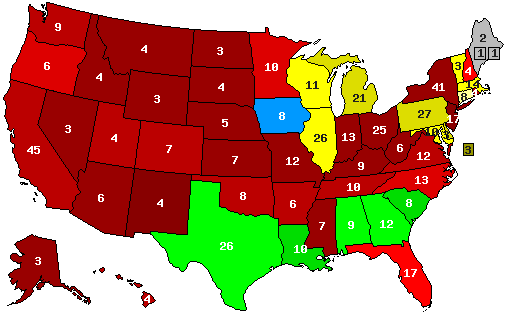
Ronald Reagan-55% (Red)
John Anderson-26% (Yellow/Gray)
John Connolly-13% (Green)
George H.W. Bush-5% (Blue)
“Take Sherman and cube it,” George H.W. Bush, referencing William T. Sherman's refusal to serve as the president in 1884 when asked by reporters if he'd accept the position of vice president.

March seemed to be the month of Anderson. After he had beaten Bush and Reagan in Vermont and Massachusetts he had gone back home to Illinois to prepare for the primary on the 18th in the state. His return to Rockford must have felt like Napoleon's arrival in Paris following Austerlitz as crowds of mostly young enthusiastic people greeted the man whom they had not known was their congressman until a month ago. His grassroots movement had grown vastly since New Hampshire and now with his string of victories on the East Coast, he went to work once more, although it would not be nearly as difficult as it had been earlier in the campaign. He now had campaign offices across the state and volunteers willing to go door to door to gather votes for the man who the press now dubbed, "The Republican Eugene McCarthy," due to his support from young people and small donors. His newfound popularity did not make Anderson lazy though, as he campaigned across the state from the rural north to Chicago and the southern farmlands. He had his native state all to himself for a whole week as Reagan and Connolly had fought in the south and it wasn't until the twelfth that Reagan had finally appeared in the state. Connolly had decided to ignore the state knowing that his southern populism would have no appeal in Anderson's backyard and he instead focused on preparing for the Louisiana primary. Bush had also decided to avoid the state. He would have liked to have campaigned there if only to spoil Anderson and allow Reagan to win, but his campaign was too broke to allow for such vindictiveness. Gathering what few supporters he had, he decided to make a last stand in the native region of his family, Connecticut. So for the first time, Anderson and Reagan would face each other alone. Media coverage of the race would explode as columnists wondered who would win between the liberal maverick and the conservative icon. The candidates for their part would take a deeply personal interest in the race, Anderson, since he represented the state in Congress, and Reagan since it was his first home. Although Anderson had strong support in the state, he was initially regarded as the underdog due to Reagan's rebounding support within the party and the potential moderate split between him and Bush. However, on the day of the primary, they would be proven wrong as Anderson beat the Gipper by 6 points with 47 percent of the vote, to Reagan’s 41 percent, followed by Connolly with 7 percent, and Bush with 5 percent. Following his victory in the state, Anderson gave a celebratory speech even more jubilant than the one in New Hampshire as his family and friends accompanied him on stage, while Reagan scolded his campaign manager William Casey behind closed doors.

(John and Keke Anderson after watching the results return from the Illinois primary)
After basking in his victory, Anderson wasted no time as he flew back to New England to finally finish off the other centrist in the race. His opponent's fall from grace had been dramatic, following New Hampshire. Once the hero of national moderate and liberal republicans almost all of them had jumped ship to the Anderson campaign following his losses. His candidacy ever afterward had been treated with apathy at best and like a joke at worst. Yet despite this fact, the primary in Connecticut would be no cakewalk. Bush had been in the state for nearly a month and had the support of almost the entirety of the state GOP officials, most of whom had in one way or another been involved with the Bush family in some way. While Bush was running low on support from donors he had no problem spending his oil money to finance his campaign. He also had been souring the voter's perception of Anderson in the state, releasing attack ads agaisnt him for his similarity with Carter as well as his past. Bush had a particularly fun time informing voters that Anderson had in the 1960s introduced a constitutional amendment that would, "recognize the law and authority of Jesus Chris over the United States." When he arrived in the state he found himself in the same position that Bush had found himself in New Hampshire and Reagan had found himself in South Carolina. With a little less than a week until the primary, Bush had outmaneuvered and outspent him significantly. Anderson would likely have lost the state if it had not been for the effort of one man, Lowell Weicker. Having abandoned his earlier bid for the presidency, he had thrown his full weight behind Anderson following New Hampshire, determined to let a liberal Republican finally have control over the party. He had never cared much for Bush, viewing him as only slightly less radical than Reagan (He had been an avid Goldwater supporter in 1964 after all), and when it looked as though Bush might carry his state, he came out swinging agaisnt the son of Prescott Bush crisscrossing the region dozens of the time while appearing with Anderson while he went after Bush for his conservatism and his negativity in Anderson often saying,
"Never vote for a man whose only position is to attack the other guy."
While nowhere near as influential as Strom Thurmond had been in South Carolina, Weicker's attacks had their effect on voters, and on primary day the final nail in the coffin was put in George Bush's campaign as he came in second to Anderson with 33 percent of the vote to Anderson's 35 while Reagan came in third with 32 percent. His last hope of making a comeback finished Bush finally dropped out, although he implied that he would fight on at the convention as he declined to endorse any candidate.
(Weicker stumping on behalf of Anderson in a rally in New Haven)
Yet despite all of Anderson's increasing star power, Reagan would not falter. Despite not winning any state in March besides Florida he was able to win almost all of New Yorks's delegates at the end of the month and by April it was clear that he was frontrunner again, despite the media dutifully reporting Anderson's wins in Wisconsin, Maine, and most surprisingly Pennsylvania where the normally jovial Reagan had lost temper at his campaign staff following his loss. However, there was no doubt that the gap between the other candidates and him was widening as he won double the number of contests of Anderson and while Connolly had won agaisnt Reagan in Lousiana, Reagan's support in the south was once again starting to surpass Connolly's as he crushed him in the Missouri Primary. This would become even more abundantly clear following the May 3rd and 6th primaries where Reagan won every single contest except Washington D.C. which Anderson won and Texas which Connolly very narrowly won (It has been rumored that Bush secretly helped his old rival in the state so that the convention could be deadlocked). While Anderson had support in New England and the Upper Midwest, and Connolly in the deep south, Reagan was sweeping the West, the Upper South, and the Lower Midwest. Both realized that they had no shot of winning the race outright which meant that the only way they could win, would be to garner enough delegates to prevent Reagan from winning on the first ballot. While Connolly had no qualms about attempting to deprive the winner of the popular vote of the nomination, Anderson did. Not only would it contradict his entire campaign message of good government and honesty, it would destroy his reputation. Even in the unlikely scenario of him winning the Republican nomination through backroom deals, he realized his chances of winning the election would be greatly diminished as conservatives would loathe him and they would either sit the election out or run a third-party candidate to stop him from becoming president. With this in mind, he refused all of Connolly's covert offers of a temporary alliance to stop Reagan. But that still left the question of his candidacy unanswered. What would he do when and if he lost the race to Reagan? After winning Maryland, just a single point ahead of Reagan, he eventually made a decision. If he did not win both the Michigan and Oregon primaries on the 20th he would drop out. With Michigan being the home of Gerald Ford and being known for its centrism and with the recent endorsement of the popular Oregon senator Mark Hatfield, Anderson was confident he could win both states. Despite his efforts though he would fall short. He would win Michigan comfortably but would lose Orgeon by almost ten points. The next day he ended his campaign, abandoning his long-sought effort to become the Republican nominee. Everyone was shocked at his announcement including Reagan, who was jubilant since his nomination was all but assured. Connolly meanwhile was livid, lashing out at everyone and everything at his ranch, and was reported to have said, "If that stupid Yankee had stayed in the race until July he could have been my damn vice president!" Connolly knew that the race was over, but his hubris made him stay in it until the Kentucky primary on the 27th of May where he lost to Reagan in a landslide. The next day he endorsed Reagan and the last opposition to the California governor dissipated. Conservatives across the country celebrated and it seemed as though Goldwater's loss in 1964 would finally be avenged. All eyes would be on the Gipper, until the first of June. After he had dropped out, Anderson had returned home and had thought about his next course of action. He was depressed at the thought of the nation having to choose between Carter and Reagan, a failing president and an arch-reactionary. So it was with this in mind that he made his fateful announcement the day of the debate between Mondale and Kennedy in his hometown of Rockwell.
"My friends my departure from the Republican race is just the beginning of a national movement. It is with this in mind that I quote the words of HG Welles, "An election should be the celebration of democracy," and my supporters response to my campaign indicates that this is a celebration and so I announce that I will seek the presidency of the United States as an independent candidate."

(John Anderson announcing his re-entrance into the race)
Results of the 1980 Republican Primaries
Ronald Reagan-55% (Red)
John Anderson-26% (Yellow/Gray)
John Connolly-13% (Green)
George H.W. Bush-5% (Blue)
Last edited:
